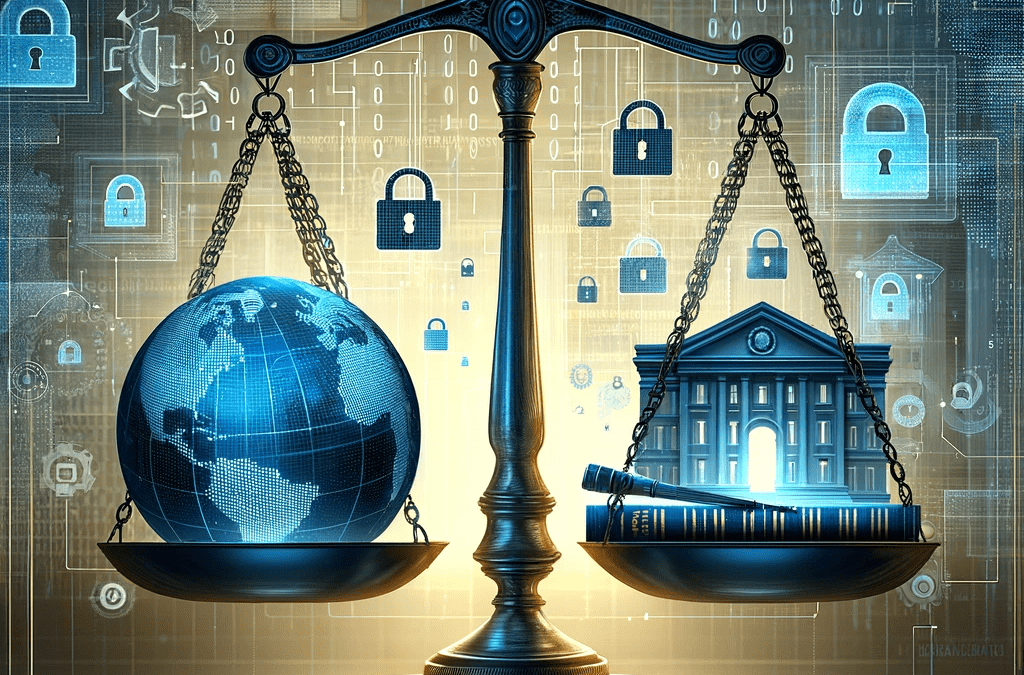Understand cybersecurity regulation
Basics of cybersecurity regulation
Cybersecurity regulation is a framework developed by governments and international bodies to minimize the risk of cyberattacks and protect the integrity, availability and confidentiality of data. This regulation addresses various aspects, including but not limited to technical security measures, organizational measures, incident management and reporting obligations.
Function and objectives of cybersecurity regulation
The main function of cybersecurity regulation is to define compliance standards for organizations to minimize security risks and ensure the protection of sensitive data. The ultimate goal of this regulation is to promote a safer online environment for both individuals and organizations. By introducing stricter standards, the regulation encourages organizations to implement proactive security controls and ensure a higher level of data protection.
Effects of non-compliance with cybersecurity regulation
Failure to comply with cybersecurity regulation can have serious consequences, including significant fines and reputational damage. In some cases, authorities may even suspend or terminate business activities until compliance is ensured. Therefore, it is critical for any organization to understand cybersecurity regulation and ensure that it is adhered to in all areas of business.
The direct impact of cybersecurity laws on companies
Understanding the importance of cybersecurity laws
Cybersecurity laws have a direct impact on businesses in many ways. First of all, these laws require organizations to implement certain security protocols and policies to protect sensitive data. This often requires significant investment in technology, infrastructure and specialized personnel to comply with these regulations.
Compliance with cybersecurity laws and challenges
Complying with these laws can be a challenge for companies. They must ensure that they have sufficient resources to implement the necessary security measures while meeting their business objectives. In addition, compliance with cybersecurity laws may also force companies to change their operations to ensure they meet legal requirements.
Effects of non-compliance with cybersecurity laws
Failure to comply with cybersecurity laws can have serious consequences for companies. In addition to potential fines and penalties, companies can also damage their reputation and lose the trust of their customers if they are unable to protect their data effectively. Therefore, it is crucial for companies to understand the implications of cybersecurity laws and take proactive measures to comply with them.
Cybersecurity regulations in a global context
Global landscape of cybersecurity regulations
In today's digitized world, cybersecurity regulations vary significantly from country to country. Some countries have introduced strict regulations to ensure the protection of data and digital systems, while others still have some catching up to do in this area. For example, with the General Data Protection Regulation (GDPR), the European Union has introduced strict standards for Data protection and data security introduced. On the other hand, countries such as India and Brazil are still working on consolidating their cyber security laws.
Impact of global cybersecurity regulations on companies
Companies that operate globally must not only comply with the cybersecurity laws of their home country, but also the prescriptive laws of the countries in which they operate. This can be a significant challenge, as they not only need to ensure that their systems and processes are compliant, but also that they have up-to-date knowledge of the relevant laws. Failure to comply with these regulations can result in significant penalties, which can be costly both financially and in terms of loss of business reputation.
The importance of harmonizing cybersecurity regulations
Given the global nature of the internet and digital technology, it is crucial to achieve a degree of harmonization of cybersecurity regulations worldwide. Such convergence can help provide clarity for businesses while ensuring a high level of protection for all users of digital services. However, coordinated efforts at international level are required to achieve such a goal, as the drafting and implementation of laws in this area requires both technical knowledge and legal expertise.
Case studies: The practical application of cybersecurity regulations
Introduction to the application of cybersecurity regulations
The practical implementation of cybersecurity regulations is an essential step in ensuring system security and data protection. In this section, we will analyze several case studies to illustrate the importance and use of these regulations.
One case study concerns a financial services company that was advised to apply strict cyber security regulations to protect itself against possible hacker attacks. These regulations included the encryption of sensitive customer data and improved authentication of employees. The implementation of these regulations led to a significant reduction in security breaches and helped the company to avoid losing the trust of its customers.
Use cases for cybersecurity regulations in the healthcare industry
Another striking case study comes from the healthcare sector. A hospital was struggling with repeated cyberattacks that compromised sensitive patient data. By implementing strict cybersecurity regulations, including firewalls and malware detection, the hospital was able to effectively protect its systems. This shows that the proper application of cybersecurity regulations can make the difference between protecting patient data and a loss of trust in the healthcare industry.
Cybersecurity regulations in the manufacturing industry
A final case study highlights the application of cybersecurity regulations in the manufacturing industry. An international manufacturing company integrated cybersecurity measures into its IT system to protect trade secrets and patent information. The regulations not only promoted security, but also provided the company with a competitive advantage by protecting its intellectual property.
Overall, these case studies demonstrate in a practical way how important cybersecurity regulations are for different industries and companies of different sizes. They serve as clear evidence that proper implementation of these regulations helps to minimize risks and increase customer confidence.
Future trends in cyber security legislation
Increased data-centric legislation
In the future, cybersecurity legislation is expected to focus more on data protection. With the increasing value of data and the growing digitalization of processes in all industries, the need to protect it will become ever more urgent. As a result, legislators around the world are likely to introduce stronger controls and stricter regulations to protect personal data.
Tightening of cyber sanctions
The future of cybersecurity legislation could also see tougher penalties for cybersecurity breaches. Given the increasing number and severity of cyberattacks, the introduction of tougher penalties could be an important tool for legislators to ensure compliance with cybersecurity standards and create a deterrent effect against potential cybercriminals.
Importance of international cooperation
As cyber threats know no geographical boundaries, international cooperation in the formulation and implementation of effective cybersecurity laws is becoming increasingly important. Future trends could include the development of common standards and frameworks for international cooperation in cyber security. This could not only help to combat cybercrime more effectively, but also help to establish a safer and more trustworthy digital environment globally.


Recent Comments